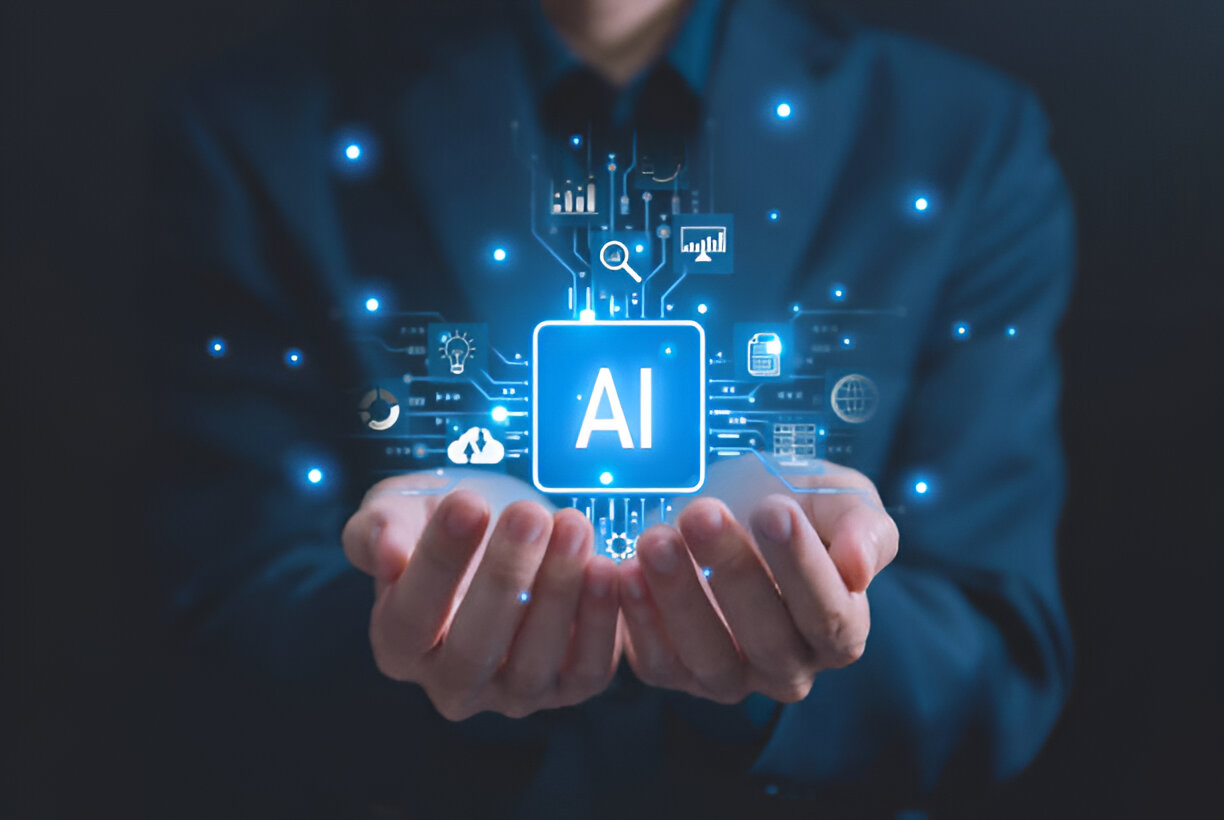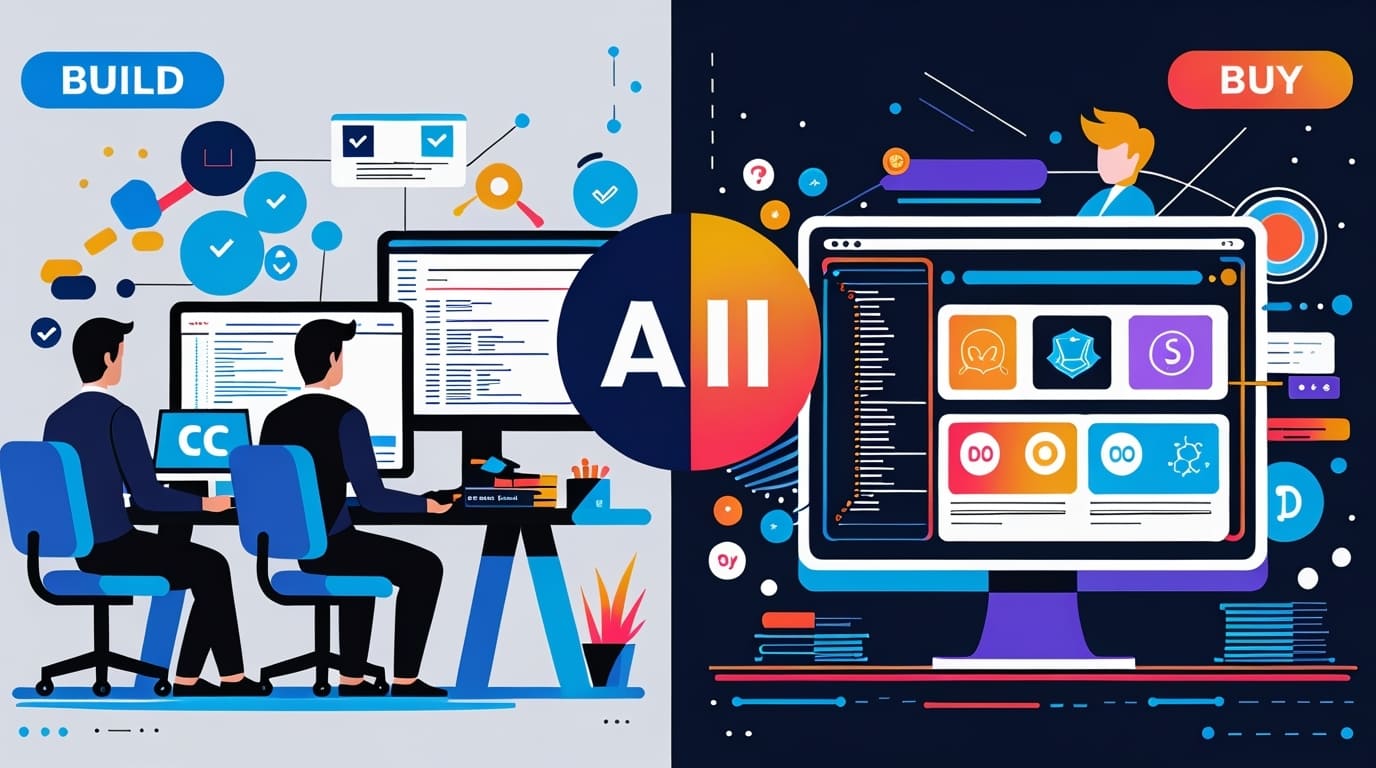In today’s fast-paced business environment, many organizations grapple with efficiency, trying to streamline operations and cut costs while improving service delivery. But have you considered the ai impact on business? This powerful technology has the potential to radically transform how companies operate, enabling them to optimize resources, enhance decision-making, and elevate overall performance. What if AI could automate routine tasks, provide insights from vast amounts of data, and allow your employees to focus on strategic initiatives? As we delve into the many benefits and applications of AI across various domains, you will discover how to harness this technology to drive growth and enhance your competitive edge.
AI Benefits Enterprise in Efficiency Improvement
Implementing AI in enterprise solutions is increasingly regarded as a transformative strategy for improving operational efficiency. Businesses that leverage AI technologies can reap significant benefits, particularly in cost reduction and enhanced decision-making capabilities.
Exploring the Cost Benefits of AI
One of the most compelling aspects of AI is its ability to lower operational costs. By automating repetitive tasks, organizations can redirect their human resources towards more value-driven initiatives. For instance, a software development company can use AI to automate various coding tasks, allowing developers to focus on more complex problem-solving and innovative features. Automation in areas like customer support—through chatbots—can significantly reduce the need for extensive human resources.
For example, consider a case where a retail chain implemented AI-driven inventory management. By analyzing purchase patterns, the system optimized stock levels, significantly reducing both overstock and stockouts. As a result, the business saw operational savings of approximately 20% within the first year of implementation. These cost benefits directly contribute to a healthier bottom line, enabling companies to reinvest in further growth initiatives.
Enhancing Decision-Making with AI
Moreover, AI empowers enterprises with advanced data analytics capabilities, allowing for better-informed decision-making. Through machine learning algorithms and predictive analytics, organizations can analyze historical data to forecast trends and consumer behavior. For example, a financial services firm utilized AI tools to analyze transaction data, leading to smarter investment strategies that improved financial returns by over 15%.
Evidence of AI’s impact on decision-making can be seen through companies in various sectors. Look at Unilever, which used AI to analyze market data and drive marketing campaigns more effectively. The result was a notable lift in conversion rates and return on investment (ROI) for their advertising efforts. By employing AI, businesses are not just reacting to past trends; they’re predicting future opportunities, which is a game changer in any competitive landscape.
AI Impact on Business Across Industries
AI is proving to be a catalyst for change across industries, offering innovative solutions tailored to specific challenges faced by various sectors.
Transformative AI Applications in Healthcare
In healthcare, the integration of AI technologies is nothing short of revolutionary. From predictive analytics that enhance patient outcomes to intelligent virtual assistants that provide timely healthcare advice, AI is reshaping how medical professionals deliver care. For instance, a study revealed that AI algorithms for diagnosing skin cancer outperformed experienced dermatologists in accuracy by 20%. This not only improves the quality of care but also streamlines treatment processes.
Moreover, AI-driven platforms are now capable of analyzing vast datasets to identify patient trends, leading to early interventions and reducing hospital readmission rates by as much as 15%. AI tools also help in managing administrative tasks, allowing healthcare providers to spend more time with patients and reducing overhead costs significantly.
Implementing AI in Retail for Personalization
In the retail sector, AI plays a crucial role in personalizing customer interactions. AI-driven systems analyze consumer behavior to provide tailored product recommendations, enhancing the shopping experience. Companies like Amazon showcase the power of AI, using algorithms to suggest products based on browsing history and preferences. This personalized marketing approach has been shown to increase sales conversions by at least 30%.
Consider another example: Zara, the fashion retailer, uses AI to analyze trends from social media and sales data. This allows them to adjust inventory based on real-time consumer insights, thereby minimizing waste and optimizing stock levels. Such AI applications not only enhance customer experience but also significantly improve operational efficiency.
Mobile App Development Company and AI Integration
The landscape of mobile applications is evolving rapidly, driven by advancements in AI. Mobile app development companies are now increasingly integrating AI features to enhance user experiences and add robust functionalities.
Benefits of AI in Mobile App Development
AI can significantly enhance user experience by making apps more intuitive and responsive. Features such as natural language processing enable voice-activated commands, while machine learning facilitates predictive text and personalized recommendations. For mobile app developers, integrating chatbots powered by AI can improve customer service, driving engagement and satisfaction.
Take a mobile banking app as an example. By integrating AI, such apps can offer tailored financial advice based on user spending habits and financial goals. Users can receive alerts on overspending or suggestions for savings, which not only fosters user loyalty but also attracts new customers seeking advanced functionalities in their banking experience.
Case Studies of Successful AI in Apps
Several mobile applications have successfully integrated AI, leading to enhanced performance and user satisfaction. For instance, Uber employs AI algorithms to optimize routes and reduce wait times, leading to an improved user experience and reduced operational costs. Similarly, Spotify’s AI-driven recommendation system personalizes music playlists for users based on their listening habits, enhancing user retention significantly.
Performance metrics for these applications often illustrate a clear impact post-AI integration. Consider Netflix: after implementing AI algorithms, it reported a 75% increase in user engagement, showcasing how effective AI can be in enhancing user interaction with mobile applications.
Software Development Company Trends with AI
As AI technologies advance, software development companies are at the forefront of integrating these tools into their development processes, transforming how software is built and maintained.
AI Tools Shaping Software Development
AI tools are increasingly shaping the landscape of software development. Powerful coding assistants can catch errors in real-time, suggest code optimization, and automate routine tasks. Tools like GitHub Copilot provide intelligent code completion, significantly speeding up the coding process.
Furthermore, AI-driven testing tools can automatically generate test cases based on code changes, improving the efficiency of software testing. This not only reduces time-to-market but also increases the quality of the software produced. By harnessing AI, companies can achieve up to 50% faster development cycles, allowing them to stay competitive in a rapidly evolving digital world.
Best Practices for AI Implementation in Software
Implementing AI in software projects comes with its own set of challenges. Best practices advocate for early planning and a clear understanding of objectives. It’s crucial to define the specific problems AI is meant to solve within a project to avoid the pitfalls of overcomplication.
Avoiding data bias is another common pitfall. Ensuring that data sets are diverse and representative is essential for developing unbiased AI models. Additionally, involving all stakeholders in the AI integration process can foster a culture of innovation and acceptance.
Future of AI Impact on Business Strategies
As AI continues to evolve, businesses must adapt to leverage its full potential. Understanding how to navigate the changes brought about by AI is becoming increasingly essential.
Navigating Challenges in AI Adoption
Despite the evident benefits of AI, businesses often face resistance to change. Employees may fear job displacement or feel overwhelmed by new technologies. Addressing these concerns head-on through education and training is crucial to foster acceptance.
Organizing workshops and providing resources for employees to learn about AI can go a long way in easing fears and building enthusiasm. Moreover, creating a supportive culture that values innovation can help in overcoming obstacles associated with AI adoption.
The Role of AI in Business Innovation
AI is not just a tool for efficiency; it’s a driver of business innovation. Businesses can naturally develop new models and services around AI capabilities. For instance, startups leveraging machine learning for predictive analytics in sectors like finance are redefining customer engagement strategies.
Consider companies like Lemonade, which utilizes AI to process insurance claims quickly. This innovation not only streamlines operations but also enhances customer satisfaction through faster service. Embracing AI opens doors to new revenue streams and market opportunities, making it an essential component of future business strategies.
Measuring AI Effectiveness in Business
The implementation of AI is substantial, but measuring its effectiveness is critical to understanding its true impact on the business.
Key Performance Indicators for AI Success
Establishing key performance indicators (KPIs) is essential for assessing AI’s success. These can range from operational efficiency metrics, such as time saved from automation, to financial metrics like ROI and cost savings. Other relevant KPIs include user engagement rates and customer satisfaction levels post-AI integration.
Tools like Google Analytics for web-based applications or custom analytics systems can offer insights into user behavior and the overall performance of AI initiatives. Regularly reviewing these metrics helps businesses refine their AI strategies and ensures alignment with overall business objectives.
Real-World Results of AI Implementations
Various sectors have seen remarkable success through AI applications. For instance, in the automotive industry, companies like Tesla have utilized AI for self-driving technology, demonstrating AI’s potential to redefine entire sectors. Post-implementation, studies reported reductions in traffic accidents by up to 20%, showcasing the safety and efficiency benefits that AI can yield.
In another case, a logistics company adopted AI for route optimization and predictive maintenance, which resulted in a 30% reduction in operational costs while simultaneously improving delivery times. Such results underline the significant impact of AI on operational effectiveness and overall business performance.
Conclusion
The ai impact on business is profound and multifaceted, encompassing cost savings, enhanced decision-making, and innovative business models. By embracing AI technologies, enterprises across various sectors can streamline operations, improve customer experiences, and foster sustainable growth. As organizations venture into the AI landscape, partnering with a trusted authority like Wildnet Edge, an AI-first company, can offer the necessary support to navigate this transformative journey. Explore the numerous AI solutions available today and unlock the full potential of your business!
FAQs
AI benefits include increased efficiency, cost savings, and enhanced decision-making, enabling businesses to operate more strategically in competitive markets.
AI transforms industries by improving processes, personalization, and data analysis, leading to better customer service, operational efficiency, and innovative solutions.
Mobile app development companies implement AI features that enhance user experience and engagement, helping to meet user expectations for advanced functionalities.
Software development companies are using AI tools for efficient coding, testing, and project management, enhancing the quality of software development and accelerating timelines.
AI is expected to drive innovation, create new business models, and redefine customer engagement strategies, making it an essential component of competitive business practices.

Managing Director (MD) Nitin Agarwal is a veteran in custom software development. He is fascinated by how software can turn ideas into real-world solutions. With extensive experience designing scalable and efficient systems, he focuses on creating software that delivers tangible results. Nitin enjoys exploring emerging technologies, taking on challenging projects, and mentoring teams to bring ideas to life. He believes that good software is not just about code; it’s about understanding problems and creating value for users. For him, great software combines thoughtful design, clever engineering, and a clear understanding of the problems it’s meant to solve.
 sales@wildnetedge.com
sales@wildnetedge.com +1 (212) 901 8616
+1 (212) 901 8616 +1 (437) 225-7733
+1 (437) 225-7733















 ChatGPT Development & Enablement
ChatGPT Development & Enablement Hire AI & ChatGPT Experts
Hire AI & ChatGPT Experts ChatGPT Apps by Industry
ChatGPT Apps by Industry ChatGPT Blog
ChatGPT Blog ChatGPT Case study
ChatGPT Case study AI Development Services
AI Development Services Industry AI Solutions
Industry AI Solutions AI Consulting & Research
AI Consulting & Research Automation & Intelligence
Automation & Intelligence













